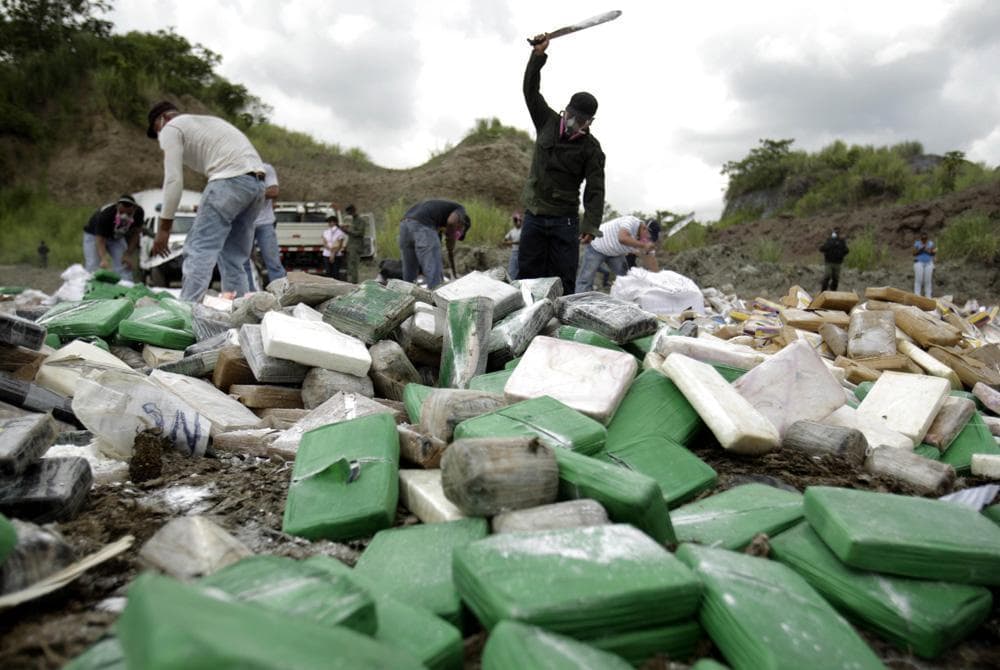The United States Department of Justice (DOJ) was patting itself on the back with gusto last week in publicizing it is prosecuting alleged drug kingpin Zhi Dong Zhang upon his extradition from Mexico. The prosecution is a really big deal in the US government’s effort to win the war on drugs according to the assertions of several government employees in the DOJ press release.
In reality, the hoopla is just more “blah, blah, blah” in support of a destructive drug war that continues to cause much harm while failing to achieve its stated objectives including the reduction of drug use and threats to safety.
“The defendant stands accused of running a global enterprise that pumped massive quantities of cocaine, fentanyl, and methamphetamine into our communities and laundered millions in narcotics proceeds,” said US Deputy Attorney General Todd W. Blanche in the press release. Further commented Blanche, “His return to the United States is a major step in dismantling a network that has fueled addiction, violence, and death.”
US Attorney Joseph Nocella Jr. seconded Blanche’s assessment that Zhang is a drug kingpin whose prosecution is a big deal in the US government’s drug war. Nocella stated, “As alleged, the defendant is a leader of one of the most prolific drug trafficking and money laundering organizations in the world who, together with his co-conspirators, imported thousands of kilograms of narcotics, including cocaine and methamphetamine, into the United States and other countries.” The prosecution of Zhang, further stated Nocella, “will hold him responsible for the great harm he has caused.”
US Attorney Theodore S. Hertzberg jumped in with a similar assessment regarding the prosecution. He is quoted in the press release commenting that “Zhang’s transnational network was allegedly intricate, well-coordinated, and well-funded” and that “through the great work of dedicated law enforcement agencies and valued cooperation from our international partners, Zhang’s poison pipeline has been shut off.”
Police involved in the case similarly commented in the press release. Ricky J. Patel of Homeland Security Investigations asserted that the arrest of Zhang “marks a decisive blow against the ruthless criminal enterprises responsible for flooding our streets with cocaine, meth and deadly fentanyl.” Robert J. Murphy from the Drug Enforcement Administration claimed that the arrest of Zhang “represents a critical milestone in a long-running investigation into an alleged high-level narcotics trafficker with international reach.” Further pledged Murphy, “We will continue to follow the evidence and the money until the leadership of these organizations is dismantled.”
For someone with limited familiarity with the US drug war, these statements may be convincing that a major victory in the “war” is being accomplished that will lead to a diminishing of drug use and problems associated with it. However, the truth is very different. People who have followed the US war on drugs know that the comments of the various government employees in the press release are just a bunch of “blah, blah, blah” that can be ignored. Been there, done that. The US government has indicted and convicted many kingpins over the decades without it reducing drug use, helping drug users, or making America safer or more free. Rather, these and other enforcement efforts encompassed in the drug war have contributed to increased dangers for drug users and have, as libertarian communicator Ron Paul has been arguing for decades, made America more dangerous and less free while failing to reduce the supply of drugs.
In his February of 2014 Future of Freedom Foundation editorial “Yawn. Another Big Drug Bust,” Jacob G. Hornberger laid out the logic and history of why it is wrong to think that the arrest, indictment, incarceration, or killing of a drug kingpin, be it Zhang last week or another such as Joaquin Guzman Loera at the time Hornberger wrote his editorial, will do anything to help the American people. “[B]usting a big drug lord or some drug gang reaps nothing but a lot of publicity for the drug warriors,” concluded Hornberger. It instead is part of a larger effort — the war on drugs — that causes many harms that people wrongly blame on drugs.
The path to a better America, concluded Hornberger, is to dispense with the whole drug war. It is also, wrote Hornberger, the path to getting rid of drug lords and drug cartels:
The irony is that there is but one way to put every single drug lord and drug cartel out of business immediately. It’s not by cracking down on them. That’s what drug legalization would do. The drug lords and drug cartels could not compete against private firms operating in legal free market. They’d be out of business the minute drugs were legalized.
Unfortunately, however, the drug warriors simply will not embrace this solution to the drug war. They’d prefer to continue going the same route they have followed for more than 40 years, including having those much-ballyhooed drug busts.
The drug warriors will continue with their preening as supposed heroes so long as enough people believe the bogus claims. That is why it is important that people who know the harm brought by the drug war spread that knowledge and respond to the drug warriors’ boasts of “successes” with counterargument, condemnation, and ridicule. Then may come a day when the drug warriors recede from power and this terrible “war” finally ends.

